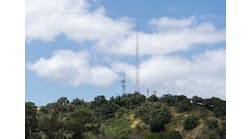We recently asked our readers this question: given what you know about the ICT Industry, what do you expect to happen, and what do you not expect to happen, in 2019? Here are some of your replies.
What I do expect: the number of mentions of "5G" in press releases will be much greater than the number of 5G small cells deployed. Yet, people start to doubt whether 5G will actually solve world hunger. US Big Incumbents, with assistance from BFF, The FCC, will strengthen market position. MSO v MNO wrestle with "friend or foe" relationships.
What I don’t expect: 5G solving world hunger. AT&T figuring out if they have to give away content to sell mobile subscriptions or give away mobile subscriptions to sell content. Verizon figuring out that 5G is just a better bit pump. Comcast and Charter to stop smirking as T and VZ spend billions building them a national 5G network.
Greg Whelan, Principal, Greywale Advisors
I expect that more and more MDUs will be pre-lit and Internet-ready. The prepaid model will get more traction. I don’t expect virtualization to be completely mature in terms of access networks.”
Aklilu Gebreyesus, Enterprise Architect, CenturyLink
I think we’ll see pressure to deploy more capacity and density in wireless networks both macro and small cells. The cost of deployment in small cells will continue to be a challenge. My exceptions are a lack of a killer app for 5G. There will be a ton of 5G trials and an expansion of deployments to more cities.
Kent Harrison, President, Harrison Consulting
What I do expect: continued construction pushing fiber deeper into the network and supporting delivery of higher speeds to our rural customers. The demand for whole home Wi-Fi coverage will be an expectation. We as ISP’s / providers will have to help the customers resolve wireless issues with more devices than ever connected to the networks. The demand for more speed will not go away. The regulatory environment will not be any easier to navigate.
Forrest Collier, Director Plant Operations, TEC
What I do expect: more demand for the higher speed DSL services. Satisfying this demand with better use of the existing copper infrastructure. Using bonded and vectoring, with minor adds to the OSP.
What I don’t expect: huge and expensive overbuilds of fiber and PON.
Bill Bouman, Sr. Field Service Tech-Network Services, TDS Telecom
I expect realistic solutions for SDN and automation within the small rural service providers’ networks. In turn, delivering services with greater ease and speed of delivery, for the consumer.
I do not expect the consumer’s need for speed to slow. This need will drive service providers to build the most reliable, speedy and transparent networks possible. Ease of use is a must. We must be more innovative over our competition. We live in a Amazon world and can not continue with the old customer service models. Consumers want to order service over Facebook messenger and not wait in a 10-minute phone queue.
Lee Rutherford, Network Operations Assistant Manager, Horizon
I expect the demand for fiber, from small businesses, to grow exponentially. They are demanding higher and higher speeds to run their businesses, whether in a urban, suburban or even rural setting.
I don’t expect my cable bill will get smaller. (Which is why I expect more people to move toward streaming services.)
Patricia Moore, Senior Engineer, CenturyLink
We are a small Cooperative in Northern New Mexico, and we continue to see the demand growing for bandwidth. In 2019, I see us having to complete a bandwidth upgrade sooner than we anticipated. Networks are jumping from 10G, to 40G and 100G networks. I have also seen locations at 400G. 5G is huge and will also require us as providers to deliver bandwidth and at multiple locations. It is going to be very difficult and expensive for small ISP’s.
I don’t see a lot of funding coming down to help connect residential customers in rural areas. It is very expensive, we are having trouble keeping up with the bandwidth requirements for school, IPTV, distance learning, telemedicine, etc. We need to find a way to help continue to bring down costs.
Jose Lovato, Fiber Optic Systems Engineer Manager, Kit Carson Internet
What I do expect: More copper harvesting. More SM Fiber deployment with support of public DAS as a priority. Rural growth in the Internet of Things.
What I don’t expect: Wide spread 5G.
David Delia, Facilities Engineer, Stanford University
What I see happening in 2019 is the continuing trend of new technologies being rolled out to continue. It seems like every month for the past several years a new device, platform, hardware and software comes out advancing the ICT industry. I see that trend continuing for 2019 and on.
What I expect not to happen in 2019 is a level playing field between the telecommunications industries and the other communications fields such as CATV. The government has been very slow in evening up everything even though they say they want it. In a lot of cases the telecom industry is at a huge disadvantage when competing with other communications providers.
Jim Shackelford, Senior Engineer, Windstream Communications
For 2019, I see more FTTx with faster speed.
What I don’t expect: POTS expanding.
Roberto Blewett, Telecom Trainer and QC, Viya
What I do expect: more fiber; more 5G.
What I don’t expect: more copper innovation.
Mark Northam, Outside Plant Engineer, Verizon Virginia LLC








